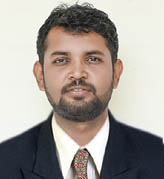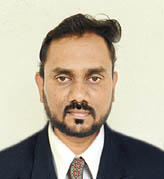About Department
Mechanical engineering is a broad discipline, covering various topics such as aerodynamics, medical devices, energy systems, system control, robotics, new product development, materials development, structural integrity, manufacturing, automotive systems, and space vehicle systems.
The mechanical engineering department offers a solid foundation in mechanical engineering fundamentals as well as the opportunity for students to concentrate their studies in several specific areas of engineering. Because of their comprehensive training and education, mechanical engineers are often called upon to assume management positions.
Mechanical engineers work in many different industries and businesses as product developers, researchers, prototype designers, automotive engineers, aerospace engineers, management consultants, among many others, and many serve in senior leadership positions in their fields. Scope exists in almost every industry including power plants of all types.
The mechanical engineering department is well-equipped facilities offer you the opportunity to build models and prototypes to demonstrate engineering design concepts. Experimentation and research are encouraged, including enriching undergraduate research experience.

Annual Intake
| Sr.No | Course | Intake |
|---|---|---|
| 1 | Engineering(B.Tech.) | 60 |
| 2 | Polytechnic | 60 |
Vision
To build a department of mechanical engineering by excellence in research, design, and development areas in order to produce the best competitive engineers.
Mission
• To develop mechanical engineering graduates, for a successful career in industry and academic around the world through effective teaching, learning, and training.
• To engage the students in academics as well as socially activities, which strengthen the department reputation in global market.
• To educate, prepare and mentor students to excel as professionals.
Programme Outcomes(POs)
1) Engineering Knowledge: Apply the knowledge of mathematics, science, engineering fundamentals, and an engineering specialization to the solution of complex engineering problems.
2) Problem Analysis: Identify, formulate, review research literature, and analyse complex engineering problems reaching substantiated conclusions using first principles of mathematics, natural sciences, and engineering sciences.
3) Design/Development of Solutions: Design solutions for complex engineering problems and design system components or processes that meet the specified needs with appropriate consideration for the public health and safety, and the cultural, societal, and environmental considerations.
4) Conduct Investigations of Complex Problems: Use research-based knowledge and research methods including design of experiments, analysis and interpretation of data, and synthesis of the information to provide valid conclusions for complex problems.
5) Modern Tool Usage: Create, select, and apply appropriate techniques, resources, and modern engineering and IT tools including prediction and modelling to complex engineering activities with an understanding of the limitations.
6) The Engineer and Society: Apply reasoning informed by the contextual knowledge to assess societal, health, safety, legal and cultural issues and the consequent responsibilities relevant to the professional engineering practice.
7) Environment and Sustainability: Understand the impact of the professional engineering solutions in societal and environmental contexts, and demonstrate the knowledge of, and need for sustainable development.
8) Ethics: Apply ethical principles and commit to professional ethics and responsibilities and norms of the engineering practice.
9) Individual and Teamwork: Function effectively as an individual, and as a member or leader in diverse teams, and in multidisciplinary settings.
10) Communication: Communicate effectively on complex engineering activities with the engineering community and with society at large, such as, being able to comprehend and write effective reports and design documentation, make effective presentations, and give and receive clear instructions.
11) Project Management and Finance: Demonstrate knowledge and understanding of the engineering and management principles and apply these to one’s own work, as a member and leader in a team, to manage projects and in multidisciplinary environments.
12) Life-long Learning: Recognize the need for and have the preparation and ability to engage in independent and lifelong learning in the broadest context of technological change.
Program Specific Outcome(PSOs)
PSO1 • An ability to find out, articulate the local industrial problems and solve with the use of mechanical engineering tools for realistic outcomes.
PSO2. • An ability of collaborative learning to find out cost-effective, optimal solution for social problems
Faculty Profile
Technical Staff
Syllabus
| Sr. No | Title | View |
|---|---|---|
| 1 | B.Tech. Mechanical Final year | View |
| 2 | B.Tech. Mechanical Second year | View |
| 3 | B.Tech. Mechanical Final year-(Old) | View |
Course Plan
Time table
Faculty Achievements
Students Achievements
Downloads
Newsletter
Reports
Workshop
Seminars/workshops/conferences
Students activities
Industrial visits
Guest Lectures




